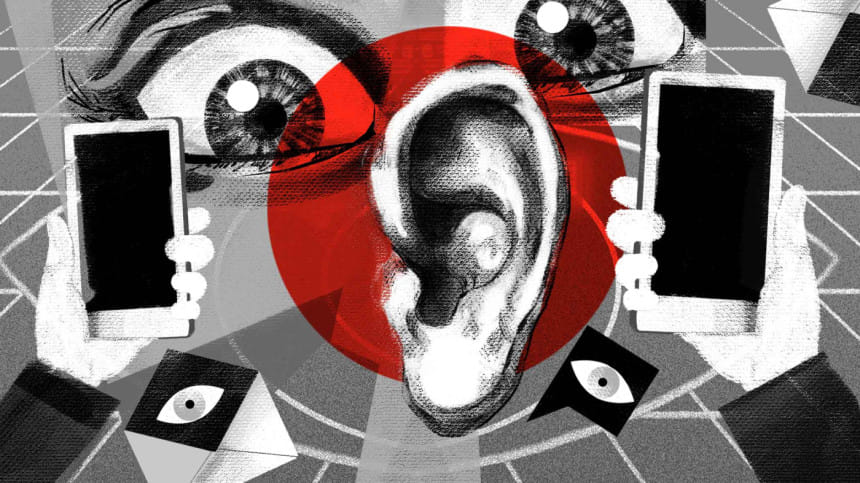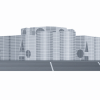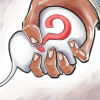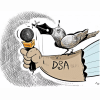Don’t normalise living in fear

Bangladesh is a nation that is being carried almost entirely by the labour of its underprivileged and uneducated people, who slave away at garment factories and toil abroad to send back remittances. However, due to fundamental flaws in democracy and the rule of law, and corruption, all the power in Bangladesh rests in the hands of the top one percent. Furthermore, the government has failed to protect the average citizen's rights as enshrined in the constitution. In fact, it seems to have set out to actively undermine the freedoms of expression and the press. As the next general election draws closer, we are seeing the authorities step up their attempts to ascertain dominance over public discourse.
It is important to understand that while online expression is recognised under the constitution, it is mostly unprotected in reality. Article 39 (1) of Chapter 2 of the constitution recognises the freedoms of thought, conscience and expression as basic rights, and online expression has historically been deemed within the scope of this article. However, some existing and pending pieces of legislation undercut these rights, and internet users now regularly risk criminal consequences for exercising their right to express freely, as guaranteed by international human rights standards. These laws include the Digital Security Act, 2018 (DSA) as well as the proposed laws such as the BTRC Regulation for Digital, Social Media and OTT Platforms, 2021, the Data Protection Act, 2022, and the Mass Media Employees (Conditions of Services) Bill, 2022.
The way the government is utilising these laws to curb expression is straightforward. The DSA's wording is remarkably vague and open to interpretation. And under the proposed laws, any content or anything that undermines the spirit of the Liberation War, offends religious sensibilities, jeopardises communal harmony, or is against national culture and social values have been prohibited. But there is no definition of what the spirit of the Liberation War means. And who decides the national culture and social values?
The implementation of punitive measures under these laws is also absurdly wide-ranging. No arrest warrant is required, and any person can claim DSA violation against any other person, who will subsequently be detained without trial. The system has been designed to facilitate an Orwellian dystopia where citizens turn against citizens and keep themselves in line, as a Big Brother government watches everything from above.
Given the information we have about these laws and the government's use of them, the prognosis is bleak. Looking at all major worldwide indices that track people's freedom of expression in democracies, we will find Bangladesh consistently falling well behind. All due to the propagation of these laws.
In 2021's Reporters Without Borders (RSF) World Press Freedom Index, Bangladesh has dropped ten places. According to the research, Bangladesh's status is now worse than that of Pakistan and Sri Lanka. Bangladesh is ranked 162nd out of 180 nations, from 152nd last year. The report also stated that the country was one of 28 globally that witnessed "extremely serious" press freedom breaches in 2021.
According to the Net Freedom index 2021, provided by Freedom House, internet freedom in Bangladesh hit an all-time low as the authorities continued to arrest users under the DSA. Self-censorship remains in the face of accusations of torture, brief abductions, and death/torture in custody.
Bangladesh's own Centre for Governance Studies (CGS) has been conducting extensive research on the country's media and press freedom situation under the DSA. According to different media reports, more than 1,500 cases have been filed under the DSA from January 1, 2020 to March 2021. Meanwhile, 925 cases were filed in 2018, 1,189 cases in 2019, and 1,128 cases in 2020. CGS has been able to track 890 cases with detailed information from January 2020 to February 2022, and conducted research where it analysed the cases. All findings under the DSA tracker project are available for people to see at our website freedominfo.net.
Dr Ali Riaz, a distinguished professor at Illinois State University and the lead investigator in the DSA tracker project, presented some key figures from CGS's research in a recent webinar. The study's most shocking finding was that members of the ruling party were using the DSA to target journalists and political opponents. According to the research, 30.98 percent of those charged are politicians, and more than a quarter are journalists. According to the figures, 207 journalists have been charged in the last 26 months.
Prof Ali Riaz determined from the data that such laws were increasingly being used to muzzle journalists and opposition politicians. If this approach continues, a culture of fear and self-censorship will emerge, in which individuals will cease expressing their views and opinions online as well as in books and news articles. Instead of civil discourse, there will only be state propaganda.
Given all this, an unbiased observer could never say that Bangladesh is a nation run by the people, for the people. If we look at the wording of the law, we see clearly that the will of the nation-state supersedes the will of the individuals. Some people may think that these sacrifices in civil liberties and fundamental rights are par for the course on the road to national development. Perhaps they go to bed at night with the naive notion that civil liberties and democratic values will be restored after some arbitrary point of development has been reached. However, if we were to ponder the topic seriously, we must ask ourselves: Why would any government ever give away such power? Power, once given, is almost impossible to take back. If the people and civil society remain dormant while the government takes all power in controlling public discourse, no election promises will ever return the power to the people.
Zillur Rahman is the executive director of the Centre for Governance Studies (CGS) and a television talk show host. His Twitter handle is @zillur

 For all latest news, follow The Daily Star's Google News channel.
For all latest news, follow The Daily Star's Google News channel. 








Comments